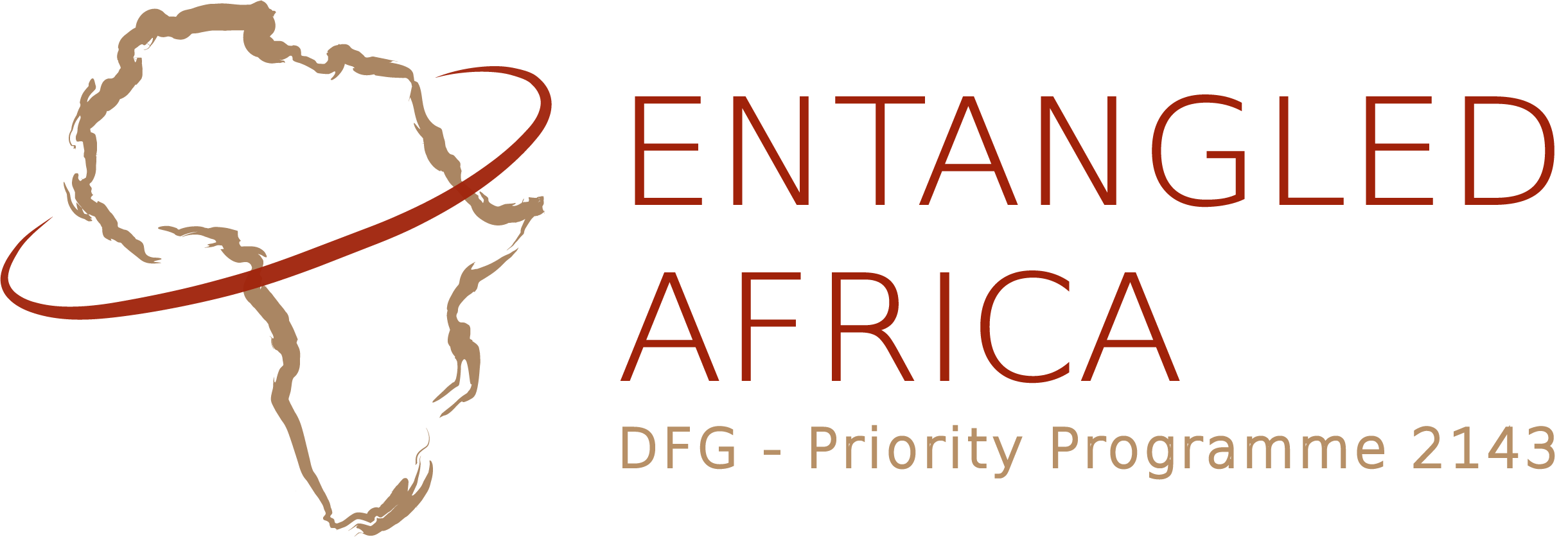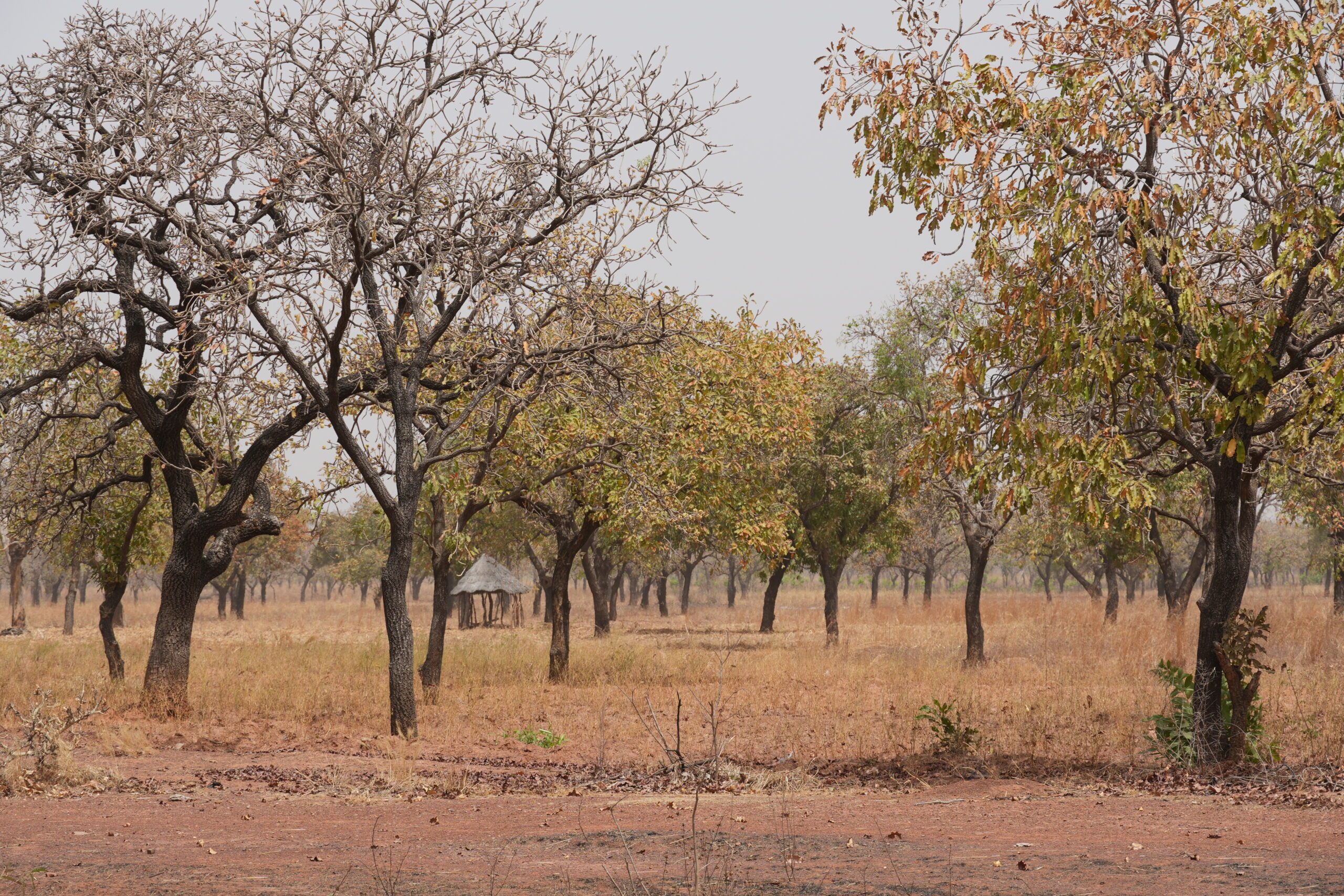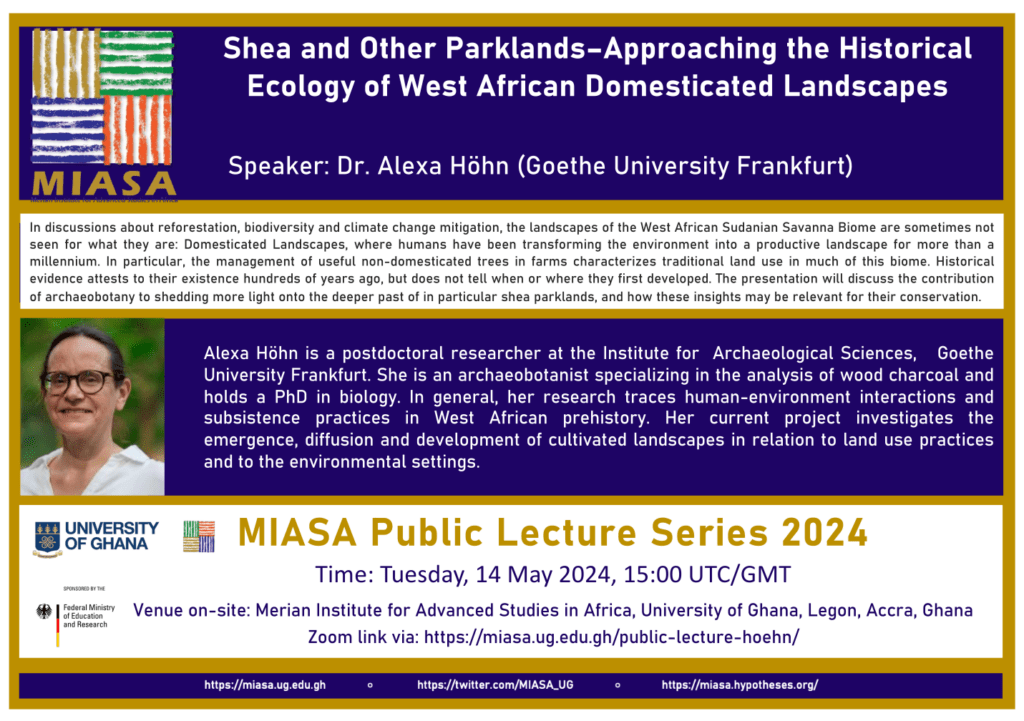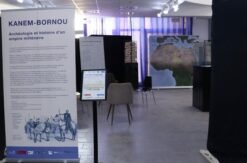Sheapark near Tamale, northern Ghana (Attribution & Copyright: A. Höhn)
Sustainable Shea – Connecting Past and Present
The “Cultivated Landscapes” project was on hold for four months, from February to May 2024. Instead, Alexa Höhn conducted research in Accra, Ghana within the frame of a Senior Individual Fellowship at the Maria Sibylla Merian Institute for Advanced Studies in Africa (MIASA), University of Ghana, Legon. Her fellowship project “Sustainable Shea – Connecting Past and Present” is an offshoot of the research undertaken in “Cultivated Landscapes”. It is motivated by the desire to make archaeobotanical research meaningful beyond academic archaeological endeavors, and to learn about other forms of research into and knowledge of parklands. While stakeholders in sustainable agriculture are rarely aware of the deep past of the parklands in West Africa, archaeobotany has so far been largely ignorant of indigenous knowledge of landscape management, for instance on how decisions about useful trees are intertwined with social structures. The project therefore aimed to initiate a dialogue between archaeobotanical research, current agronomic research and farmers’ knowledge, bringing together the different perspectives on shea parks in the past and present. The ensuing discussions led to the conceptualization of a transdisciplinary paper that targets some common misconceptions about these West African domesticated landscapes.
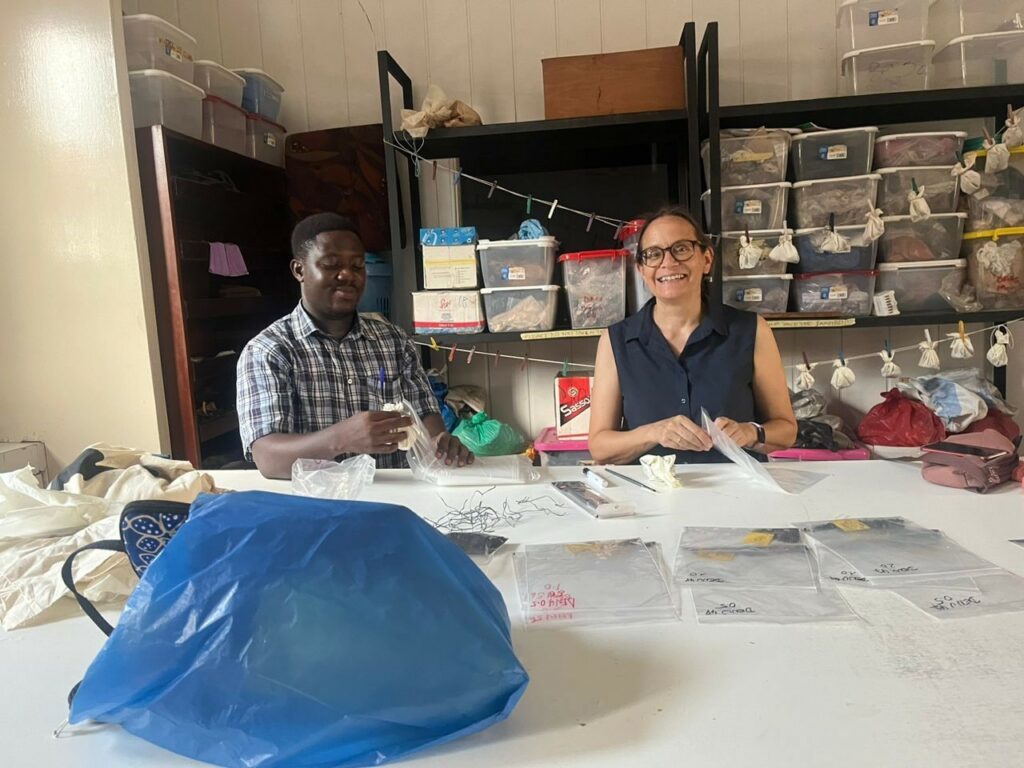
The stay at the University of Ghana also allowed for the practical support of and intensive discussions with a student at the Department of Archaeology and Heritage Studies, who is co-supervised by Alexa Höhn for his Master’s thesis. In order to finalize his analysis, he is offered an internship at the Frankfurt Archaeobotany Laboratory at Goethe University in September 2024, financed by “Entangled Africa”.
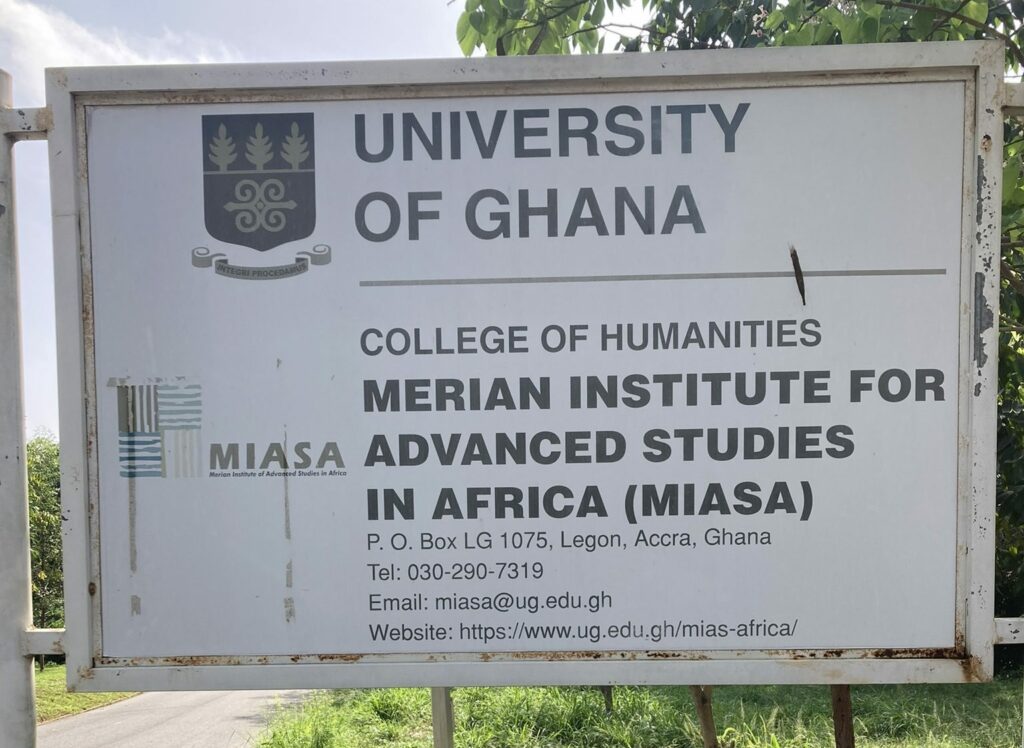
The fellowship at MIASA was a unique experience: The vibrant community of fellows and colleagues from the University of Ghana with different academic backgrounds and interested in diverse fields of research, be it decolonial practices, global and colonial history, sustainable governance of urban water management and urban landscape architecture, or food security and rural development broadened the academic horizon. Comments, questions and discussions during the regular meetings and lectures as well as in informal settings, allowed taking a step back from the usual tracks of thought and putting the research of the “Cultivated Landscapes” project into new perspectives.
